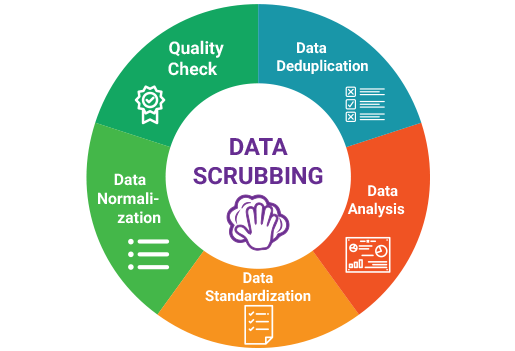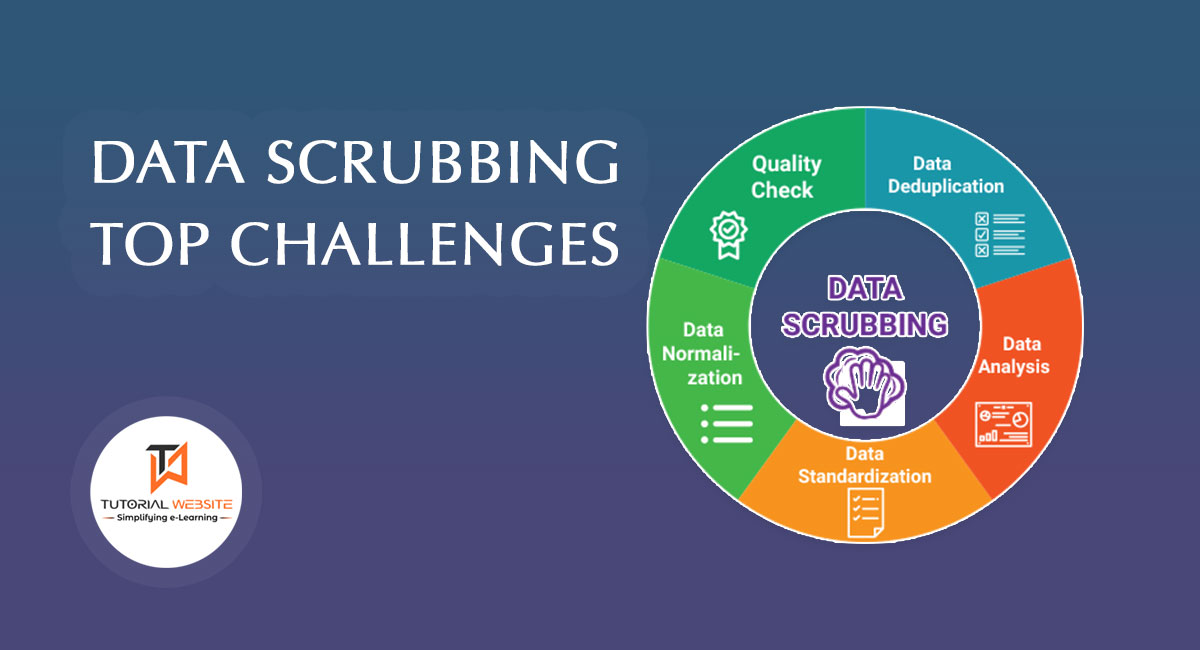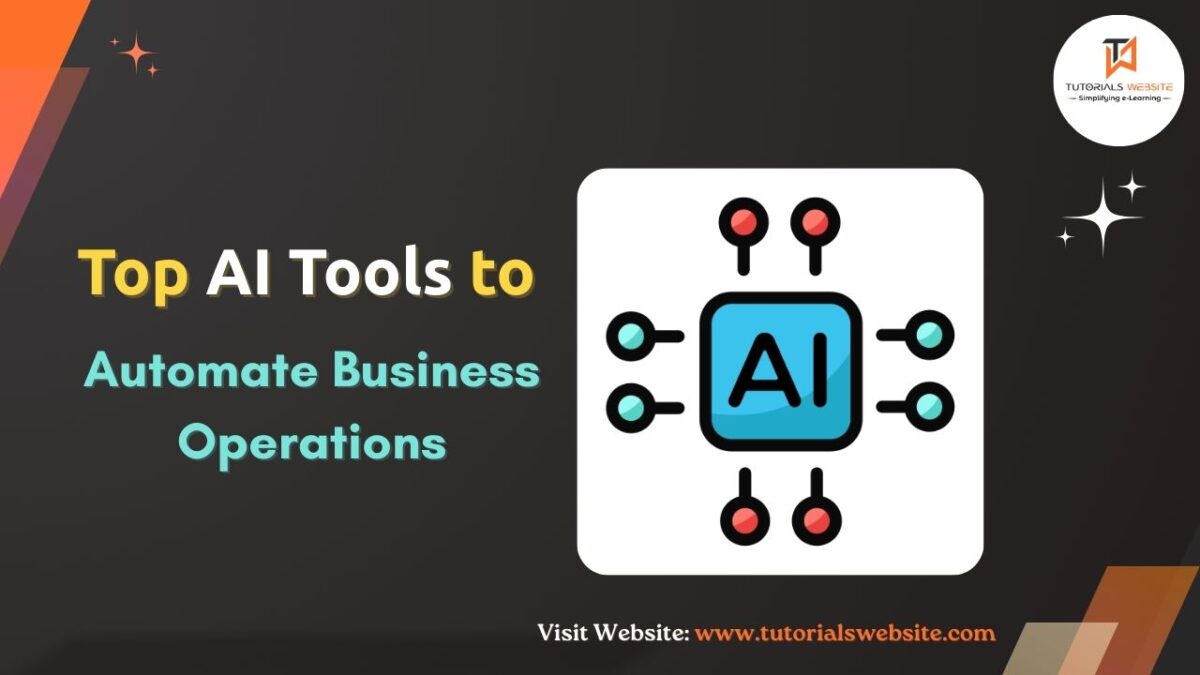Data quality is the most critical part of any business intelligence plan. It’s one thing to build systems to collect and distribute data; however, if the data is corrupted, and if you haven’t solved the top challenges facing data scrubbing it’s useless. Regardless of the organization’s specialty or the sort of data it collects, data cleaning is a must-have.
Data scrubbing, also known as data cleansing or data cleaning, is the act of identifying and correcting errors and inconsistencies in data to improve its quality. Inconsistencies exist in single data collections such as files and databases. Poor data quality can be caused by incorrect spellings during data entry, erroneous data, missing information, and other issues.
Suggested Read: 10 golden rules to write engaging content
What is data scrubbing?
Data scrubbing is a compilation of sub-processes like appending, cleansing, normalization, etc. Data appending is a technique for updating or removing erroneous or inaccurate data. Because wrong data can lead to erroneous judgments, conclusions, and analysis, this technique is crucial and should be highlighted, especially when significant amounts of big data are involved. As a result of large bad data, businesses have lost a significant amount of money. Data cleansing is a crucial activity for any company. It’s vital to use the right figures, clean them up, and analyze them in order to make the best business decisions possible. Individuals and businesses amass a lot of personal information over time! With the passage of time, information becomes obsolete.

It is the process of looking through all of the databases and eliminating or updating any missing, erroneous, poorly structured, duplicated, or unnecessary information. The procedure’s main goal is to organize, update, and clarify current records. Big facts can become cluttered, duplicated, and difficult to handle over time. The procedure entails:
- Identifying faulty or unnecessary data
- Fixing or deleting incorrect data
- Organizing data
Top challenges facing data scrubbing
Failure to identify challenges facing data cleaning and updating erroneous data can cause serious issues during downstream data processing, resulting in poor business decisions that can be tremendously costly to the company. A data entry outsourcing service provider would have organized figures appending procedures in place. The process of correcting facts and figures accuracy is riddled with many challenges, few of them are:
- High volume of data
Data Warehouses, for example, regularly load massive volumes of details from a number of sources, and they also hold a substantial amount of data errors. In this circumstance, data cleansing becomes both important and difficult at the same time.
- Misspellings
Data Warehouses, for example, regularly load massive volumes of details from a number of sources, and they also hold a substantial amount of statistics errors. In this circumstance, cleansing becomes both important and difficult at the same time.
- Misfielded value
The problem of misfielded values occurs when the values submitted are correct in terms of format but do not belong in the field.
- Domain Format Errors
When the value for a certain attribute is accurate, but the domain format is wrong, domain format errors occur. For example, a specific NAME database requires a comma to separate the first and last names, but the input does not contain a comma. While the input is correct in this situation, it does not conform to the domain format.
Why is data scrubbing important?
- Reduces overall costs
Duplicate data clutter the workplace, resulting in unproductive operations. Businesses must streamline their operations to the greatest extent possible. Profits are higher when overall costs are lower. Managers will also benefit from data purification when deciding on roles inside their departments.
- Improves efficiency and productivity
Productivity suffers as a result of cluttered databases. Computers take longer to retrieve facts. Past clients crowd client menus, causing the office administrator to sort through a long list to place an order. Worse, managers may place orders with suppliers with whom the company no longer has a contract. When statistics become congested, all of these problems can readily occur.
When things get out of hand to the point of causing substantial delays, businesses prefer to outsource data preprocessing services.
- Improved mapping
Organizations are increasingly seeking to upgrade their internal data infrastructures. A robust data hygiene plan is a logical approach because having clean data from the outset makes it significantly easier to collate and map.
- Take better business decisions
Top companies are coming up with new methods to leverage data in almost every element of their operations. One of the most significant benefits is that having access to the right facts allows businesses to make better decisions. As a result, they obtain a competitive advantage over their competitors who do not.
Steps in the data cleansing process
- Inspection and Profiling: To begin, figures are evaluated and audited to determine their quality and highlight problems that need to be addressed. Profiling is a procedure that identifies relationships between data items, examines the quality, and accumulates statistics on the database to aid in the detection of errors, discrepancies, and other issues.
- Cleaning: It is at the core of the cleansing process when errors are corrected and inconsistent, and duplicate and redundant data is addressed.
- Verification: After the scrubbing step has been done, the individual or team who worked on it should review it again to ensure its cleanliness and compliance with internal quality norms and standards.
Tools used for scrubbing process
With the advancement of technology, experts have figured out several tools to face the top challenges during the appending process of data, some of them are:
- OpenRefine
- Drake
- Tibco Clarity
- DemandTools
- Cloudingo
- TIBCO Clarity
- Data Ladder
Also Read: What Are Different Types of Data Processing?
Conclusion
It is important to solve top challenges facing data scrubbing, make it accurate, and consistent, and avoid duplication of information. Data integrity is an important aspect of data management. This article discusses the frequent issues that arise when performing data purification and serves as a guide for record quality improvement and validation.

Vikas Maurya is a professional blogger and Data analyst who writes about a variety of topics related to his niche, including data analysis and digital marketing.





